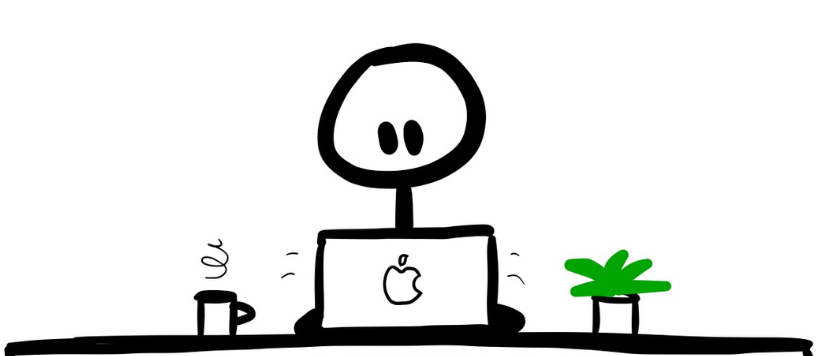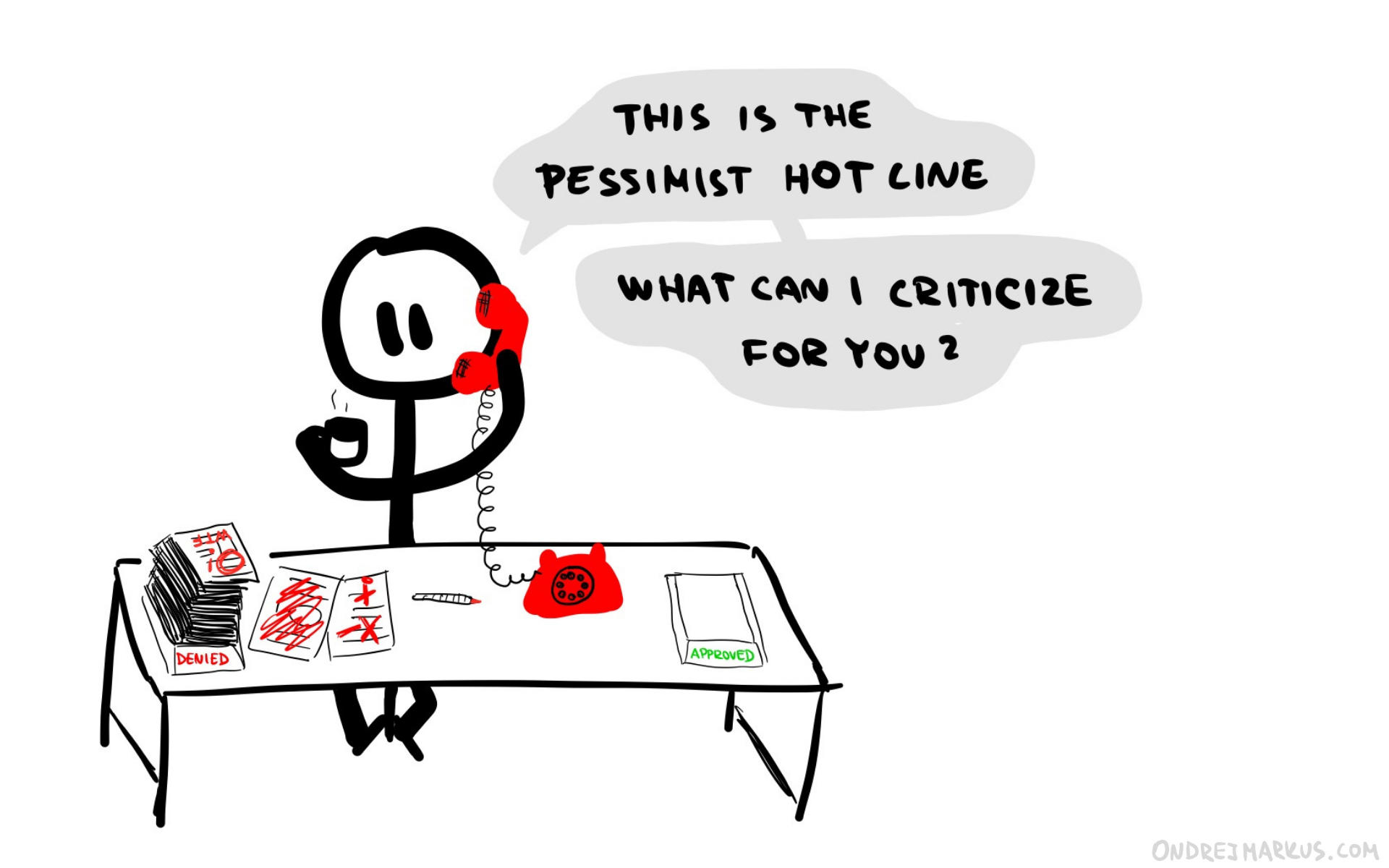Ondrej Markus
Entrepreneur in ed-tech, building the future of education as a founder and CEO at Playful.
I write about the future of education, designing learning games, and running a startup.
I'm a generalist, introvert, gamer, and optimizing to be useful.

Train your brain to be optimistic

I was a pessimist when I was younger. I spent a lot of time unhappy because my brain reacted to bad things by flooding me with negative thoughts.
One day, I decided I wanted to become an optimist. It sounds silly, but I did it. I trained my brain to respond positively to almost anything that happens.
I will tell you how.
A pessimistic brain is not a happy place
Learning optimism started as a necessity after an ugly breakup when I was 19. I’m just going to say there was cheating and my former good friend involved. It wasn’t fun.
The result left me very sour. Whenever I remembered it, I felt terrible.
At that time, I started reading more and discovered that people can learn things and change. (I know!)
I’m not sure what was more shocking to me:
- The realization that I can change if I try,
- or that during 13 years at school, nobody pointed out to me the fact that people aren’t precoded machines stuck with whatever dysfunctioning schemes they have in their brains.
Anyway.
I wondered how to stop thinking toxic thoughts anytime I remembered the breakup.
So I started paying more attention to how I react to things in general. And I discovered I have a very critical brain. I never realized that before.
For example, when somebody would bump into me on a tram and give me a nasty look, it would be my one-way ticket to a dark place:
“Who is this idiot that doesn’t know how to walk properly and looks at me all weird?"

I would get annoyed and think about it for hours.
Let’s review this:
- I was in a good mood.
- Then a random event happened that was outside of my control.
- And now I’m angry, annoyed, I hate people and all life.
Welcome to my brain when I was 16.
And this would still be my brain today if I didn’t train myself to be more optimistic.
I decided I wanted to change. I wanted to feel good more often than not.
Whether you spend most of your time thinking positive or negative thoughts is your happiness in a nutshell:
- Are you living in constant doubt, anxiety, fear, envy, or anger about what is happening and might happen in the future?
- Or are you generally optimistic about how things are and where they’re going because you can see the upside in everything?
I’m not here to tell you what you should feel. I’m here to tell you that you can choose what you feel by training your brain.
How to train optimism as a habit
Now, let’s look at how I learned optimism.
I will describe this method as a Trigger–Response–Reward cycle, which is how people form new habits.

Creating the optimism habit
- Trigger: Whenever something bad happens (however small)
- Response: Check your reaction: Is it positive or negative?
2a) If it’s positive, it’s a win.
Pat yourself on the back. You did it. Your reward will be a dose of dopamine delivered to your brain who did such a good job. Good boy.

2b) If it’s negative, it’s a learning opportunity.
Realize you reacted negatively and force your brain to think something positive about what just happened.

3. Reward: In both cases, you finish the habit cycle by thinking something positive about what just happened, and you feel good about yourself. (That’s the dopamine flooding your brain.)
For example:
- Trigger: “I didn’t get that project.”
- Response: “Well, at least I will have more time for writing.”
- Reward: “Nice! I did it. I was positive. Thanks brain.”
Important: At first, you will react negatively much more often than positively. Don’t feel bad about catching yourself in the act of thinking negative thoughts. The correction is the most valuable part. Be glad you noticed. It’s a successful repetition.
It’s like pulling weights at the gym. Every rep makes you stronger even though it might hurt.
Brain reps work the same way. Every time you catch yourself and correct your reaction from negative to positive, it’s a moment for celebration, not shame.
Every successful repetition makes the next one easier until the habit becomes automatic.

Actions become easier with repetition
Although, sometimes you won’t catch yourself at all. That’s okay. When you later realize it happened, remind yourself to pay more attention the next time. You will get better at it.
I was surprised by how quickly my brain adapted and replaced negative reactions with positive ones. It took 2-3 months before I rarely had to correct myself anymore.
Of course, I still sometimes get a negative first reaction because of a bad mood or whatnot. But it’s a rare incident instead of the default reaction it once was.
Use the best of both worlds
Now, you might think: “But I don’t want to lose my critical thinking and replace it with some positive-psychology-unicorns-and-rainbows thinking."
Good point. But that’s not how this works.
Training yourself to react positively doesn’t make everything good. I can still tell that something sucks. This isn’t about pretending nothing is ever a problem.
I haven’t lost any critical thinking by training my brain to be more optimistic. I can still unleash my pessimism after enjoying the initial positive reaction.
I mean, if you need to know what’s wrong with something, I’m your guy.

Me volunteering on the pessimist hot line
The difference is that my brain is now a much more pleasant place to live in because it’s not angry or annoyed all the time.
My initial reaction to almost anything is positive. This is because my brain automatically finds an upside in everything that happens.
Creating the optimism habit was one of the tiniest but most impactful changes on my everyday happiness. I bet it can do the same for you.